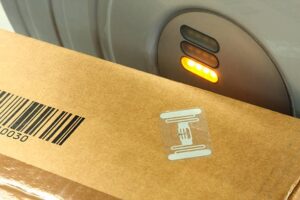Radiofrequency identification (RFID) tags are small, intelligent labels communicating through electromagnetic waves from a tag to a reader. They are commonly used in tracking goods in a supply chain, stocktaking in retail environments and enterprise asset management.
RFID tags Australia is becoming increasingly popular as they offer several advantages over barcodes. They also come in a variety of sizes and shapes.
Result Group Partners with Global Smart Packaging Solutions Provider
 Innovative packaging solutions enhance the customer experience and provide consumers with more information about their products. These solutions use RFID tags, QR codes, and other technologies to inform consumers about the product’s quality, authenticity, and freshness.
Innovative packaging solutions enhance the customer experience and provide consumers with more information about their products. These solutions use RFID tags, QR codes, and other technologies to inform consumers about the product’s quality, authenticity, and freshness.
The growth of e-commerce has accelerated the demand for intelligent packaging technology, which enables a wide range of businesses to deliver their products efficiently and cost-effectively. Moreover, innovative packaging ensures that products are safe and secure throughout the supply chain.
Result Group, a product packaging supplier, has partnered with global intelligent packaging solutions provider Talkin’ Things. This partnership allows the company to provide brand protection for millions of Australian products, help brands deliver personalised consumer experiences, and improve logistics efficiency.
RFID Technology Boosts Supply Chain Efficiency
Using RFID technology for inventory management can help you get accurate product information into the hands of your sales teams and customers. It can also speed up invoice settlements and eliminate costly errors caused by manual data logging.
Another critical reason to consider an RFID system is that it can help you keep track of expensive business assets, such as test equipment, transport packing, computer tech, and field vehicles. Replacing these items can cost your company a lot of money if these items disappear.
RFID tags Australia allows you to track your assets at a level of detail that is unattainable with traditional inventory methods. They give you usage and location data that can identify bottlenecks and help you better plan how to use your business assets. This can lead to significant efficiency improvements in your supply chain and other business areas.
RFID Asset Tags Are Suitable for a Wide Range of Applications
RFID tags are an excellent option for asset tracking in any industry. They can be applied to various assets, including tools and equipment, vehicles, hospital equipment, or even oil well pumps. RFID asset tracking systems can provide improved visibility into your assets with regular location updates without scanning a barcode manually. This can help improve scalability and efficiency in your supply chain and ensure every purchase is continuously tracked.
Choosing the correct tag type for your application depends on several factors, including the size and value of your items, your environment, your read range, and any processes they go through. However, there are three general types of tags: low frequency (LF), active, and passive.
Passive tags are the least expensive, costing around 20 cents per tag. They have a limited range and no battery but are generally robustly built. As a result, they’re often used in various applications, from supply chain management to race tracking and file management.
RFID Tags Are Cost-Effective
RFID is a cost-effective technology that helps improve inventory management and increase revenue. It enables retailers to track items at the item level and perform instant on-demand stocktakes, protecting against shoplifting and shrinkage, providing customers with a self-checkout process, and reinforcing product security.
Unlike barcodes, which require scanning at one point and must be placed near the reader, RFID tags can be read remotely from up to six metres away. This significantly reduces the labour costs associated with reading barcodes.
With RFID, you can identify and track shipments of all kinds, including foods, products, materials, and parts. You can monitor and respond to damage, reroute damaged produce and keep your customer happy.
RFID also helps you identify potential risks and vulnerabilities in your supply chain and can help you improve your processes to prevent future problems. You can use ShockWatch®, for example, to track damage trends linked to specific foods, packaging, lanes, routes, or carriers to quickly identify and solve supply chain issues that could impact your business.
RFID tags Australia is becoming increasingly popular across a range of sectors, including retail, tickets for transit and animal tagging. IDTechEx estimates that 2.31 billion RFID tags will be sold worldwide in 2010, compared to 1.98 billion in 2009.
Australian retailers benefit from RFID for increased inventory accuracy and stock reliability, which helps to reduce stocking issues and improve customer satisfaction. RFID also allows retail brands to track all their products, including omnichannel sales and stocking levels.